eyphoria
62 posts
Don't wanna be here? Send us removal request.
Text

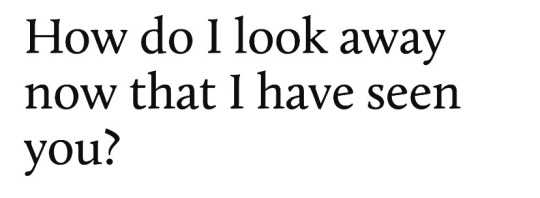
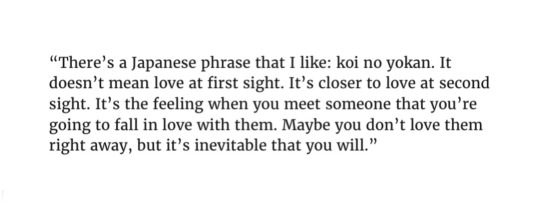
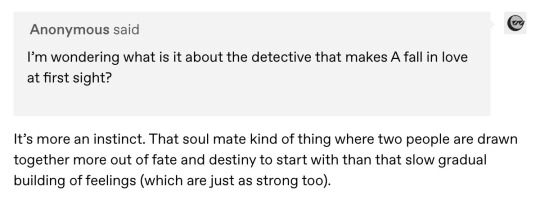

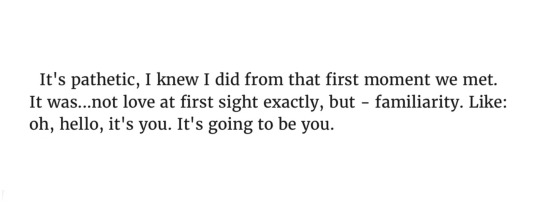



on adam’s love at first sight.
mishka jenkins, the wayhaven chronicles | rachel mennies, ‘april 18, 2017,’ the naomi letters | nicola yoon, the sun is also a star | mishka jenkins via @/seraphinitegames | jodi picoult, the book of two ways | mhairi mcfarlane, you had me at hello | victor hugo, les misèrables | mishka jenkins, the wayhaven chronicles | louise glück, the burning heart
826 notes
·
View notes
Photo


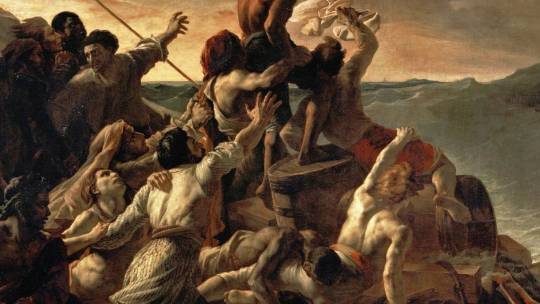


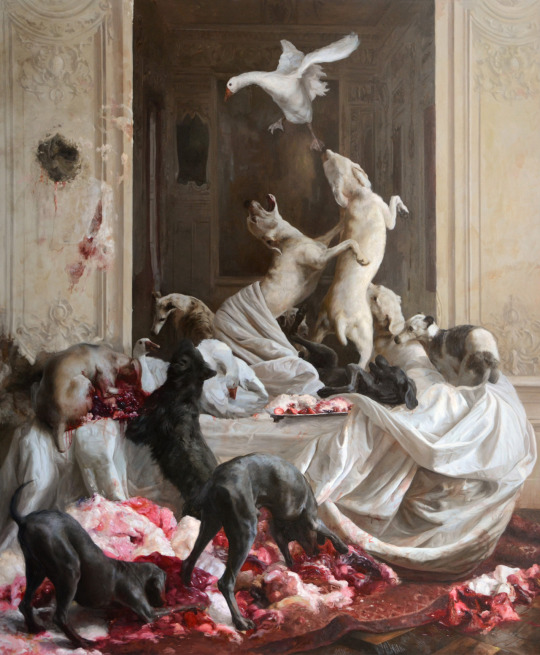


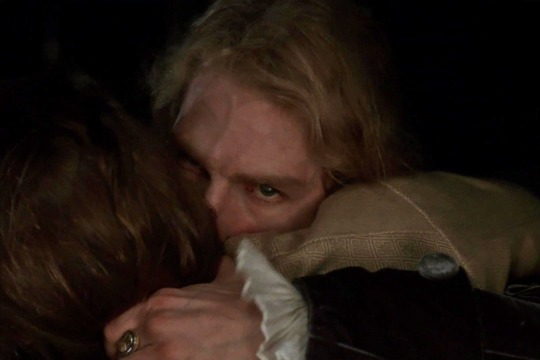


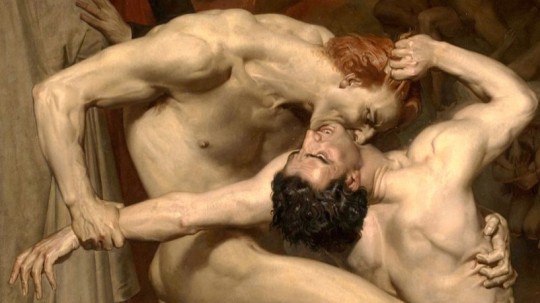




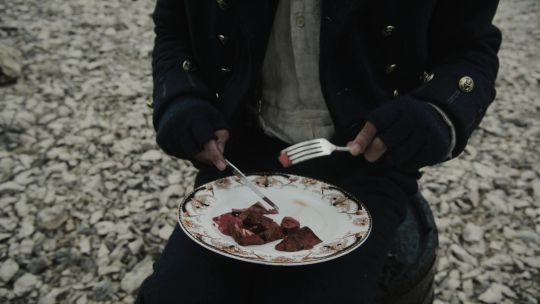



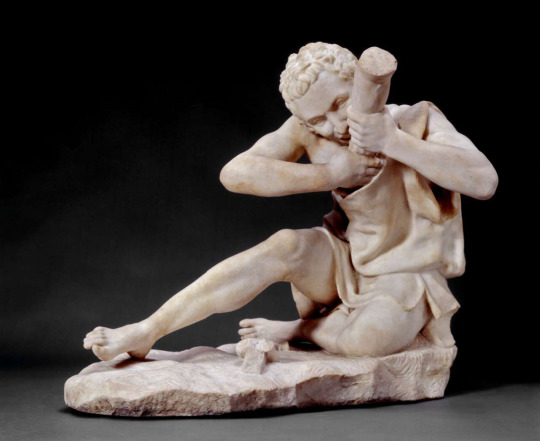



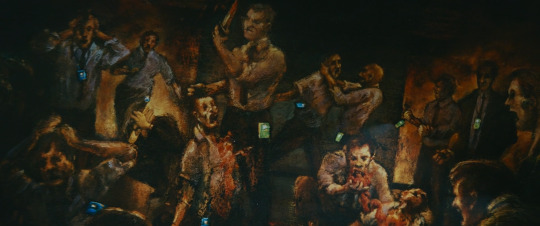

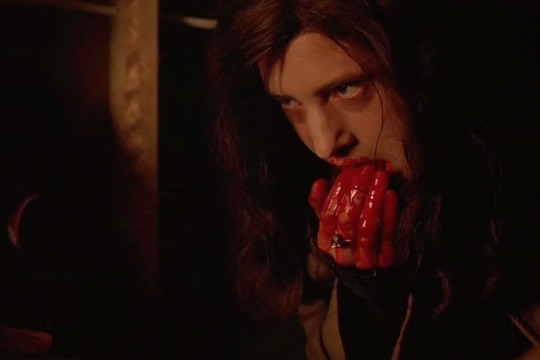

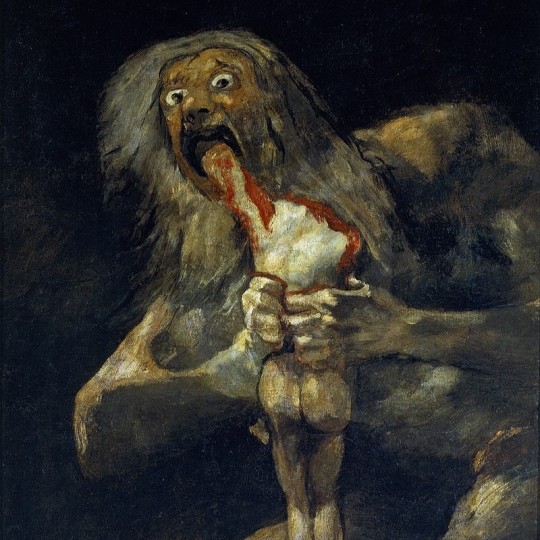










Star Wars: Knights of the Old Republic II: The Sith Lords / Lara Williams, Supper Club / Théodore Géricaul, The Raft of the Medusa (1818–19) / Jenefer Shute, Life-Size / Ovid (tr. Henry T. Riley), The Story of Erysichthon from Metamorphoses / Guillermo Lorca Garcia-Huidobro, The Banquet (2013-14) / Maya C. Popa, from “The Color Wheel Has Been Cancelled”, American Faith / Haruki Murakami, Norwegian Wood / Interview With the Vampire (1994) / Yves Olade, Belovéd / Natalie Diaz, Postcolonial Love Poem / William-Adolphe Bouguereau, Dante and Virgil (1850) / J. Karl Bogartte, A Curious Night for a Double Eclipse / Leah Raeder, Black Iris / Hannibal (2013-2015) / Marina Tsvetaeva, Poem of the End / The Terror (2018) / CS Lewis, The Horse and His Boy / Beastars (2019 - ?) / Hélène Cixous from “The Love of the Wolf” / “The Cannibal” / Azra T. / Raw (2016) / Richard Siken, from Crush; “Wishbone” / Severance (2022 - ?) / Emma Rebholz, No Good Boodsuckers / Aex Lemon, Another Last Day / Francisco Goya, Saturn Devouring His Son (c. 1819–1823) / Anne Carson, Plainwater: Essays and Poetry / Black Sails (2014 - 2017) / Kathy Acker, Empire of the Senseless / Anaïs Nin, Henry and June / Neon Genesis Evangelion (1995–1996) / Tanaka Mhishi / Margaret Atwood, You Are Happy / Jennifer’s Body (2009) / KotOR II / Edna St. Vincent Millay, from The Collected Poems of E. M; “True Encounter”
5K notes
·
View notes
Photo

— Ocean Vuong, “Untitled (Blue, Green, and Brown): oil on canvas: Mark Rothko: 1952”; Night Sky with Exit Wounds (2016)
[Text ID: “Maybe we pray on our knees because god only listens when we’re this close to the devil.”]
2K notes
·
View notes
Text
favourite investigative/long-form journalism pieces
a collation of from previous reading lists! enjoy :)
bold = favourite. * = interactive.
red river women* (canada)
the race to build the world’s first sex robot
singapore’s tech-utopia dream is turning into a surveillance state nightmare
how 7-eleven is ripping off its workers* (australia)
the secretive prisons that keep migrants out of europe* (eu)
hunting the men who kill women: mexico’s femicide detective
dead white man’s clothes* (ghana)
inside racism hq: how home-grown neo-nazis are plotting a white revolution (australia)
the night raids* (usa/afghanistan)
how the us stitched up the honduras garment industry
behind the smiles at amazon*
the secret irs files (usa)
pandora papers: from temples to offshore trusts, a hunt for cambodia’s looted heritage leads to top museums
the barcelona lifeguards defying europe to save migrants on the open sea*
welcome to the monkey house (south korea/usa)
612 notes
·
View notes
Text
Monique Wittig
The Straight Mind:
FR: Avant-note à La Pensée Straight: La Révolution d’un point de vue (par Louise Turcotte)
1. The Category of Sex
2. One Is Not Born A Woman
3. The Straight Mind
4. On the Social Contract
5. Homo Sum
6. The Point of View: Universal or Particular?
7. The Trojan Horse
8. The Mark of Gender
(files will be deleted 23.12.2017)
Les Guérillères
The Lesbian Body (this link directly downloads the PDF)
1K notes
·
View notes
Text
Recommended reading for leftists
Introduction and disclaimer:
I believe, in leftist praxis (especially online), the sharing of resources, including information, must be foremost. I have often been asked for reading recommendations by comrades; and while I am by no means an expert in leftist theory, I am a lifelong Marxist, and painfully overeducated. This list is far from comprehensive, and each author is worth exploring beyond the individual texts I suggest here. Further, none of these need to be read in full to derive benefit; read what selections from each interest you, and the more you read the better. Many of these texts cannot truly be called leftist either, but I believe all can equip us to confront capitalist hegemony and our place within it. And if one comrade derives the smallest value or insight herefrom, we will all be better for it. After all… La raison tonne en son cratère. Alone we are naught, together may we be all. Solidarity forever.
***
(I have split these into categories for ease of navigation, but there is plenty of overlap. Links included where available.)
Classics of socialist theory
~
Capital (vol.1) by Karl Marx Marx’s critique of political economy forms the single most significant and vital source for understanding capitalism, both in our present and throughout history. Do not let its breadth daunt you; in general I feel it’s better to read a little theory than none, but nowhere is this truer than with regards to Capital. Better to read 20 pages of Capital than 150 pages of most other leftist literature. This is not a book you need to ‘finish’ in order to benefit from, but rather (like all of Marx’s work) the backbone of theory which you will return to throughout your life. Read a chapter, leave it, read on, read again. https://www.marxists.org/archive/marx/works/download/pdf/Capital-Volume-I.pdf
The Prison Notebooks by Antonio Gramsci In our current epoch of global neoliberal capitalism, Gramsci’s explanation of hegemony is more valuable than much of the economic or outright revolutionary analyses of many otherwise vital theory. Particularly following the coup attempt and election in America, as well as Brexit and abusive government responses to Covid, but the state violence around the world and the advent of fascism reasserts Gramsci as being as pertinent and prophetic now as amidst the first rise of fascism. https://abahlali.org/files/gramsci.pdf
Imperialism: The Highest Stage Of Capitalism by V.I. Lenin Like Marx, for many Lenin’s work is the backbone of socialist theory, particularly in pragmatic terms. In much of his writing Lenin focuses on the practical processes of revolutionary transition from capitalism to communism via socialism and proletarian leadership (sometimes divisively among leftists). Imperialism is perhaps most valuable today for addressing the need for internationalist proletarian support and solidarity in the face of global capitalist hegemony, arguably stronger today than in Lenin’s lifetime. https://www.marxists.org/archive/lenin/works/1916/imp-hsc/imperialism.pdf
Socialism: Utopian And Scientific by Friedrich Engels Marx’s partner offers a substantial insight into the material reality of socialism in the post-industrial age, offering further practical guidance and theory to Marx and Engels’ already robust body of work. This highlights the empirical rigour of classical Marxist theory, intended as a popular text accessible to proletarian readers, in order to condense and to some extent explain the density of Capital. Perhaps even more valuable now than at the time it was first published. https://www.marxists.org/archive/marx/works/1880/soc-utop/index.htm
In Defense Of Marxism by Leon Trotsky It has been over a decade since I have read any Trotsky, but this seems like a very good source to get to grips with both classical Marxist thought and to confront contemporary detractors. In many ways, Trotsky can be seen as an uncorrupt symbol of the Leninist dream, and in others his exile might illustrate the dangers of Leninism (Stalinism) when corrupt, so who better to defend the virtues of the system many see as his demise? https://www.marxists.org/archive/trotsky/idom/dm/dom.pdf
The Conquest Of Bread by Pyotr Kropotkin Krapotkin forms the classical backbone of anarchist theory, and emerges from similar material conditions as Marxism. In many ways, ‘the Bread book’ forms a dual attack (on capitalism and authoritarianism of the state) and defence (of the basic rights and needs of every human), the text can be seen as foundational to defining anarchism both in overlap and starkly in contrast with Marxist communism. This is a seminal and eminent text on self-determination, and like Marx, will benefit the reader regardless of orthodox alignment. https://libcom.org/files/Peter%20Kropotkin%20-%20The%20Conquest%20of%20Bread_0.pdf
Leftism of the 20th Century and beyond
~
Freedom Is A Constant Struggle: Ferguson, Palestine, And The Foundations Of A Movement by Angela Davis This is something of a placeholder for Davis, as everything she has ever put to paper is profoundly valuable to international(ist) struggles against capitalism and it’s highest stage. Indeed, the emphasis on the relationship between American and Israeli racialised state violence highlights the struggles Davis has continually engaged since the late 1960s, that of a united front against imperialist oppression, white supremacists, patriarchal capitalist exploitation, and the carceral state. https://www.docdroid.net/rfDRFWv/freedom-is-a-constant-struggle-pdf#page=6
Postmodernism, Or, The Cultural Logic Of Late Capitalism by Frederic Jameson A frequent criticism of Marxism is the false claim that it is decreasingly relevant. Here, Jameson presents a compelling update of Marxist theory which addresses the hegemonic nature of mass media in the postmodern epoch (how befitting a tumblr post listing leftist literature). Despite being published in the early ‘90s, this analysis of late capitalism becomes all the more pertinent in the age of social media and ‘influencers’ etc., and illustrates just how immortal a science ours really is. https://is.muni.cz/el/1423/jaro2016/SOC757/um/61816962/Jameson_The_cultural_logic.pdf
The Ecology Of Freedom: The Emergence And Dissolution Of Hierarchy by Murray Bookchin I have not read this in depth, and take issue with some of Bookchin’s ideas, but this seems like a very good jumping off point to engage with ecosocialism or red-green theory. Regardless of any schism between Marxist and anarchist thought, the importance of uniting together to stem the unsustainable growth of industrialised capitalism cannot be denied. Climate change is unquestionably a threat faced by us all, but which will disproportionately impact the most disenfranchised on the planet. https://theanarchistlibrary.org/library/murray-bookchin-the-ecology-of-freedom.pdf
Why Marx Was Right by Terry Eagleton I’ve only read excerpts of this; I know Eagleton better for his extensive work on Marxist literary criticism, postmodernity, and postcolonial literature, so I’m including this work of his as a means of introducing and engaging directly with Marxism itself, rather than the synthesis of diverse fields of analysis. But Eagleton generally does a very good job of parsing often incredibly dense concepts in an accessible way, so I trust him to explain something so obvious and self-evident as why Marx was right. https://filosoficabiblioteca.files.wordpress.com/2018/12/EAGLETON-Terry-Why-Marx-Was-Right.pdf
By Any Means Necessary by Malcolm X Malcolm X is one of the pre-eminent voices of the revolutionary black power movement, and among the greatest contributors to black/American leftist thought. This is a collection of his speeches and writings, in which he eloquently and charismaticly conveys both his righteous outrage and optimism for the future. Malcolm X’s explicitly Marxist and decolonial rhetoric is often downplayed since his assassination, but even the title and slogan is borrowed from Frantz Fanon.
Feminism and gender theory
~
Sister Outsider: Essays And Speeches by Audre Lorde The primary thrust of this collection is the inclusion of ‘The Master’s Tools Will Never Dismantle The Master’s House’, probably Lorde‘s most well known work, but all the contents are eminently worthwhile. Lorde addresses race, capitalist oppression, solidarity, sexuality and gender, in a rigourously rhetorical yet practical way that calls us to empower one another in the face of oppression. Lorde’s poetry is also great. http://images.xhbtr.com/v2/pdfs/1082/Sister_Outsider_Essays_and_Speeches_by_Audre_Lorde.pdf
Feminism Is For Everybody by bell hooks A seminal addition to Third Wave Feminist theory, emphasising the reality that the aim of feminism is to confront and dismantle patriarchal systems which oppress - you guessed it - everybody. This book approaches feminism through the lens of race and capitalism, feeding into the discourse on intersectionality which many of us now take as a central element of 21st Century feminism. https://excoradfeminisms.files.wordpress.com/2010/03/bell_hooks-feminism_is_for_everybody.pdf
Gender Trouble: Feminism And The Subversion Of Identity by Judith Butler Butler and her work form probably the single most significant (especially white) contribution to Third Wave Feminism, as well as queer theory. This may be a somewhat dense, academic work, but the primary hurdle is in deconstructing our existing perceptions of gender and identity, which we are certainly better equipped to do today specifically thanks to Butler. Vitally important stuff for dismantling hegemonic patriarchy. https://selforganizedseminar.files.wordpress.com/2011/07/butler-gender_trouble.pdf
Trans Liberation: Beyond Pink Or Blue by Leslie Feinberg Feinberg is perhaps the foundational voice in trans theory, best known for Stone Butch Blues, but this text seems like a good point to view hir push into mainstream acceptance where ze previously aligned hirself and trans groups more with gay and lesbian subcultures. A central element here is the accessibility and deconstruction of hegemonic gender and expression, but what this really expresses is a call for solidarity and support among marginalised classes, in a fight for our mutual visibility and survival, in the greatest of Marxist feminist traditions.
The Haraway Reader by Donna Haraway Haraway is perhaps better known as a post-humanist than a Marxist feminist, but in all honesty, I am not sure these can be disentangled so easily. My highest recommendation is the essay ‘A Cyborg Manifesto: Science, Technology, and Socialist-Feminism in the Late Twentieth Century‘, but it is in many ways concerned more with aesthetics and media criticism than anything practical, and Haraway’s engagement with technology has only become more significant, with the proliferation of smartphones and wifi, to understanding our bodies and ourselves as instruments of resistance. https://monoskop.org/images/5/56/Haraway_Donna_The_Haraway_Reader_2003.pdf
Postcolonialism
~
The Wretched Of The Earth by Frantz Fanon Perhaps my highest recommendation, this will give you better insight into late stage (postcolonial) capitalism than perhaps anything else. Fanon was a psychologist, and his analyses help us parse the internal workings of both the capitalist and racialised minds. I don’t see this work recommended nearly enough, largely because Fanon’s Black Skin, White Masks is a better source for race theory, but The Wretched Of The Earth is the best choice for understanding revolutionary, anti-capitalist, and decolonial ideas. http://abahlali.org/wp-content/uploads/2011/04/Frantz-Fanon-The-Wretched-of-the-Earth-1965.pdf
Orientalism by Edward Said This is probably the best introduction to postcolonial theory, particularly because it focuses on colonial/imperialist abuses in media and art. Said’s later work Culture And Imperialism may actually be a better source for strictly leftist analysis, but this is the groundwork for understanding the field, and will help readers confront and interpret everything from Western military interventionism to racist motifs in Disney films. https://www.eaford.org/site/assets/files/1631/said_edward1977_orientalism.pdf
Decolonisation Is Not A Metaphor by Eve Tuck and K. Wayne Yang In direct response to Fanon’s call to decolonise (the mind), Tuck and Yang present a compelling assertion that the abstraction of decolonisation paves the way for settler claims of innocence rather than practical rapatriation of land and rights. The relatively short article centres and problematises ongoing complicity in the agenda of settler-colonial hegemony and the material conditions of indigenous groups in the postcolonial epoch. Important stuff for anti-imperialist work and solidarity. https://clas.osu.edu/sites/clas.osu.edu/files/Tuck%20and%20Yang%202012%20Decolonization%20is%20not%20a%20metaphor.pdf
The Coloniser And The Colonised by Albert Memmi Often read in tandem with Fanon, as both are concerned with trauma, violence, and dehumanisation. But further, Memmi addresses both the harm inflicted on the colonised body and the colonisers’ own culture and mind, while also exploring the impetus of practical resistance and dismantling imperialist control structures. This is also of great import to confronting detractors, offering the concrete precedent of Algerian decolonisation. https://cominsitu.files.wordpress.com/2020/05/albert-memmi-the-colonizer-and-the-colonized-1.pdf
Can The Subaltern Speak? by Gayatri Spivak This relatively short (though dense) essay will ideally help us to confront the real struggles of many of the most disenfranchised people on earth, removing us from questions of bourgeois wage-slavery and focusing on the right to education and freedom from sexual assault, not to mention the legacy of colonial genocide. http://abahlali.org/files/Can_the_subaltern_speak.pdf
Wider cultural studies
~
No Logo by Naomi Klein I have some qualms with Klein, but she nevertheless makes important points regarding the systemic nature of neoliberal global capitalism and hegemony. No Logo addresses consumerism at a macro scale, emphasising the importance of what may be seen as internationalist solidarity and support and calling out corporate scapegoating on consumer markets. I understand that This Changes Everything is perhaps even better for addressing the unreasonable expectations of indefinite and unsustainable growth under capitalist systems, but I haven’t read it and therefore cannot recommend; regardless, this is a good starting point. https://archive.org/stream/fp_Naomi_Klein-No_Logo/Naomi_Klein-No_Logo_djvu.txt
The Black Atlantic: Modernity And Double Consciousness by Paul Gilroy This is an important source for understanding the development of diasporic (particularly black) identities in the wake of the Middle Passage between African and America, but more generally as well. This work can be related to parallel phenomena of racialised violence, genocide, and forced migration more widely, but it is especially useful for engaging with the legacy of slavery, the cultural development of blackness, and forms of everyday resistance. https://dl1.cuni.cz/pluginfile.php/756417/mod_resource/content/1/Gilroy%20Black%20Atlantic.pdf
Imagined Communities: Reflections On The Origin And Spread Of Nationalism by Benedict Anderson This text is important in understanding the nature of both high colonialism and fascism, perhaps now more than ever. Anderson examines the political manipulation and agenda of cultural production, that is the propagandised, artificial act of nation building. This analyses the development of nation states as the norm of political unity in historiographical terms, as symptomatic of old school European imperialism. Today we may see this reflected in Brexit or MAGA, but lebensraum and zionism are just as evident in the analysis. https://is.muni.cz/el/1423/jaro2016/SOC757/um/6181696/Benedict_Anderson_Imagined_Communities.pdf
Discipline And Punish: The Birth Of The Prison by Michel Foucault Honestly, I am not sure if this should be on this list; I would certainly not call it leftist. That said, it is a very important source to inform our perceptions of the nature of institutional power and abuse. It is also unquestionable that many of the pre-eminent left-leaning scholars of the past fifty years have been heavily influenced, willing or not, by Foucault and his post-structuralist ilk. A worthwhile read, especially for queer readers, but take with a liberal (zing!) helping of salt. https://monoskop.org/images/4/43/Foucault_Michel_Discipline_and_Punish_The_Birth_of_the_Prison_1977_1995.pdf
Trouble In Paradise: From The End Of History To The End Of Capitalism by Slavoj Žižek Probably just don’t read this, it amounts to self-torture. Okay but seriously, I wanted to include Žižek (perhaps against my better judgement), but he is probably best seen as a lesson in recognising theorists as fallible, requiring our criticism rather than being followed blindly. I like Žižek, but take him as a kind of clown provocateur who may lead us to explore interesting ideas. He makes good points, but he also… Doesn’t… Watch a couple youtube videos and decide if you can stomach him before diving in.
Additional highly recommended authors (with whom I am not familiar enough to give meaningful descriptions or specific recommended texts) (let me know if you find anything of significant value from among these, as I am likely unaware!):
Theodor Adorno (of the Frankfurt School, which also included Herbert Marcuse, Erich Fromm, and Walter Benjamin, all of whom I’d likewise recommend but with whom I have only passing familiarity) was a sociologist and musicologist whose aesthetic analyses are incredibly rich and insightful, and heavily influential on 20th Century Marxist theory.
Sara Ahmed is a significant voice in Third Wave Feminist criticism, engaging with queer theory, postcoloniality, intersectionality, and identity politics, of particular interest to international praxis.
Mikhail Bakhtin was a critic and scholar whose theories on semiotics, language, and literature heavily guided the development of structuralist thought as well as later Marxist philosophy.
Mikhail Bakunin is perhaps the closest thing to anarchist orthodoxy. Consistently involved with revolutionary action, he is known as a staunch critic of Marxist rhetoric, and a seminal influence on anti-authoritarian movements.
Silvia Federici is a Marxist feminist who has contributed significant work regarding women’s unpaid labour and the capitalist subversion of the commons in historiographical contexts.
Mark Fisher was a leftist critic whose writing on music, film, and pop culture was intimately engaged with postmodernity, structuralist thought, and most importantly Marxist aesthetics.
Che Guevara was a major contributor to revolutionary efforts internationally, most notably and successfully in Cuba. His writing is robustly pragmatic as well as eloquent, and offers practical insight to leftist action.
Hồ Chí Minh was a revolutionary communist leader of the Democratic Republic of Vietnam, and a significant contributor to revolutionary communist theory and anti-imperialist practice.
C.L.R. James is a significant voice in 20th Century (especially black) Marxist theory, engaging with and criticising Trotskyist principles and the role of ethnic minorities in revolutionary and democratic political movements.
Joel Kovel was a researcher known as the founder of ecosocialism. His work spans a wide array of subjects, but generally tends to return to deconstructing capitalism in its highest stage.
György Lukács was a critic who contributed heavily to the Western Marxism of the Frankfurt School and engaged with aesthetics and traditions of Marx’s philosophical ideology in contrast with Soviet policy of the time.
Rosa Luxemburg was a revolutionary socialist organiser, publisher, and economist, directly engaged in practical leftist activity internationally for a significant part of the early 20th Century.
Mao Zedong was a revolutionary communist, founder and Chairman of the People’s Republic of China, and a prolific contributor to Marxism-Leninism(-Maoism), which he adapted to the material conditions outside the Western imperial core.
Huey P. Newton was the co-founder of the Black Panther Party and a vital force in the spread and accessibility of communist thought and practical internationalism, not to mention black revolutionary tactics.
Léopold Sédar Senghor was a poet-turned-politician who served as Senegal’s first president and established the basis for African socialism. Also central to postcolonial theory, and a leader of the Négritude movement.
***
I hope this list may be useful. (I would also be interested to see the recommendations of others!) Happy reading, comrades. We have nothing to lose but our chains.
1K notes
·
View notes
Note
hello, could you suggest some books/essays on photography? I feel like you already answered this ask but I can't seem to find it anywhere :(
here you go —
books
on photography by susan sontag — essays on photography, transparency, ethics, voyeurism
camera lucida by roland barthes — on photographers and photography as a medium and as art; particularly on how photography or the photograph is related to loss, the body and mind
between the eyes: essays on photography and politics by john berger, david levi strauss — a much more recent collection; about photography and politics and society; on reality, what photographs convey, what they end up doing etc
another way of telling by john berger — on developing a theory of photography; so it covers a bunch of questions about what the nature of a photograph is, if photography is more of an art form or a medium to document 'reality'
bystander: a history of street photography by colin westernbeck — this is a fun one; about how photography on the street took place in urban chaos
towards a philosophy of photography by vilém flusser (trans. anthony mathews) — pretty much like berger or sontag; on the tension between aesthetics, politics, and morality implicit in photography and the possibility of developing a philosophy and a theory that takes into account all of these tensions
essays
'looking at war' — susan sontag
'daydreams and fragments' — maël renouard
'what it was like when peter hujar took your photograph' — linda rosenkrantz
're-framing photography: some thoughts' — stefanie michels
'raghu rai' — mukul kesavan
happy reading!
172 notes
·
View notes
Text
Essays
Here’s a (non-exhaustive) list of essays I like/find interesting/are food for thought; I’ve tried to sort them as much as possible. The starred (*) ones are those I especially love
also quick note: some of these links, especially the ones that are from books/anthologies redirect you to libgen or scihub, and if that doesn’t work for you, do message me; I’d be happy to send them across!
Literature + Writing
Godot Comes to Sarajevo - Susan Sontag
The Strangeness of Grief - V. S. Naipaul*
Memories of V. S. Naipaul - Paul Theroux*
A Rainy Day with Ruskin Bond - Mayank Austen Soofi
How Albert Camus Faced History - Adam Gopnik
Listen, Bro - Jo Livingstone
Rachel Cusk Gut-Renovates the Novel - Judith Thurman
Lost in Translation: What the First Line of “The Stranger” Should Be - Ryan Bloom
The Duke in His Domain - Truman Capote*
The Cult of Donna Tartt: Themes and Strategies in The Secret History - Ana Rita Catalão Guedes
Never Do That to a Book - Anne Fadiman*
Affecting Anger: Ideologies of Community Mobilisation in Early Hindi Novel - Rohan Chauhan*
Why I Write - George Orwell*
Rimbaud and Patti Smith: Style as Social Deviance - Carrie Jaurès Noland*
Art + Photography (+ Aesthetics)
Looking at War - Susan Sontag*
Love, sex, art, and death - Nan Goldin, David Wojnarowicz
Lyons, Szarkowski, and the Perception of Photography - Anne Wilkes Tucker
The Feminist Critique of Art History - Thalia Gouma-Peterson, Patricia Mathews
In Plato’s Cave - Susan Sontag*
On reproduction of art (Chapter 1, Ways of Seeing) - John Berger*
On nudity and women in art (Chapter 3, Ways of Seeing) - John Berger*
Kalighat Paintings - Sharmishtha Chaudhuri
Daydreams and Fragments: On How We Retrieve Images From the Past - Maël Renouard
Arthur Rimbaud: the Aesthetics of Intoxication - Enid Rhodes Peschel
Cities
Tragic Fable of Mumbai Mills - Gyan Prakash
Whose Bandra is it? - Dustin Silgardo*
Timur’s Registan: noblest public square in the world? - Srinath Perur
The first Starbucks coffee shop, Seattle - Colin Marshall*
Chhatrapati Shivaji Terminus, Mumbai’s iconic railway station - Srinath Perur
From London to Mumbai and Back Again: Gentrification and Public Policy in Comparative Perspective - Andrew Harris
The Limits of “White Town” in Colonial Calcutta - Swati Chattopadhyay
The Metropolis and Mental Life - Georg Simmel
Colonial Policy and the Culture of Immigration: Citing the Social History of Varanasi - Vinod Kumar, Shiv Narayan
A Caribbean Creole Capital: Kingston, Jamaica - Coln G. Clarke (from Colonial Cities by Robert Ross, Gerard J. Telkamp
The Colonial City and the Post-Colonial World - G. A. de Bruijne
The Nowhere City - Amos Elon*
The Vertical Flâneur: Narratorial Tradecraft in the Colonial Metropolis - Paul K. Saint-Amour
Philosophy
The trolley problem problem - James Wilson
A Brief History of Death - Nir Baram
Justice as Fairness: Political not Metaphysical - John Rawls*
Should Marxists be Interested in Exploitation? - John E. Roemer
The Discomfort You’re Feeling is Grief - Scott Berinato*
The Pandemic and the Crisis of Faith - Makarand Paranjape
If God Is Dead, Your Time is Everything - James Wood
Giving Up on God - Ronald Inglehart
The Limits of Consensual Decision - Douglas Rae*
The Science of “Muddling Through” - Charles Lindblom*
History
The Gruesome History of Eating Corpses as Medicine - Maria Dolan
The History of Loneliness - Jill Lepore*
From Tuskegee to Togo: the Problem of Freedom in the Empire of Cotton - Sven Beckert*
Time, Work-Discipline, and Industrial Capitalism - E. P. Thompson*
All By Myself - Martha Bailey*
The Geographical Pivot of History - H. J. Mackinder
The sea/ocean
Rim of Life - Manu Pillai
Exploring the Indian Ocean as a rich archive of history – above and below the water line - Isabel Hofmeyr, Charne Lavery
‘Piracy’, connectivity and seaborne power in the Middle Ages - Nikolas Jaspert (from The Sea in History)*
The Vikings and their age - Nils Blomkvist (from The Sea in History)*
Mercantile Networks, Port Cities, and “Pirate” States - Roxani Eleni Margariti
Phantom Peril in the Arctic - Robert David English, Morgan Grant Gardner*
Assorted ones on India
A departure from history: Kashmiri Pandits, 1990-2001 - Alexander Evans *
Writing Post-Orientalist Histories of the Third World - Gyan Prakash
Empire: How Colonial India Made Modern Britain - Aditya Mukherjee
Feminism and Nationalism in India, 1917-1947 - Aparna Basu
The Epic Riddle of Dating Ramayana, Mahabharata - Sunaina Kumar*
Caste and Politics: Identity Over System - Dipankar Gupta
Our worldview is Delhi based*
Sports (you’ll have to excuse the fact that it’s only cricket but what can i say, i’m indian)
‘Massa Day Done:’ Cricket as a Catalyst for West Indian Independence: 1950-1962 - John Newman*
Playing for power? rugby, Afrikaner nationalism and masculinity in South Africa, c.1900–70 - Albert Grundlingh
When Cricket Was a Symbol, Not Just a Sport - Baz Dreisinger
Cricket, caste, community, colonialism: the politics of a great game - Ramachandra Guha*
Cricket and Politics in Colonial India - Ramchandra Guha
MS Dhoni: A quiet radical who did it his way*
Music
Brega: Music and Conflict in Urban Brazil - Samuel M. Araújo
Color, Music and Conflict: A Study of Aggression in Trinidad with Reference to the Role of Traditional Music - J. D. Elder
The 1975 - ‘Notes On a Conditional Form’ review - Dan Stubbs*
Life Without Live - Rob Sheffield*
How Britney Spears Changed Pop - Rob Sheffield
Concert for Bangladesh
From “Help!” to “Helping out a Friend”: Imagining South Asia through the Beatles and the Concert for Bangladesh - Samantha Christiansen
Gender
Clothing Behaviour as Non-verbal Resistance - Diana Crane
The Normalisation of Queer Theory - David M. Halperin
Menstruation and the Holocaust - Jo-Ann Owusu*
Women’s Suffrage the Democratic Peace - Allan Dafoe
Pink and Blue: Coloring Inside the Lines of Gender - Catherine Zuckerman*
Women’s health concerns are dismissed more, studied less - Zoanne Clack
Food
How Food-Obsessed Millennials Shape the Future of Food - Rachel A. Becker (as a non-food obsessed somewhat-millennial, this was interesting)
Colonialism’s effect on how and what we eat - Coral Lee
Tracing Europe’s influence on India’s culinary heritage - Ruth Dsouza Prabhu
Chicken Kiev: the world’s most contested ready-meal*
From Russia with mayo: the story of a Soviet super-salad*
The Politics of Pancakes - Taylor Aucoin*
How Doughnuts Fuelled the American Dream*
Pav from the Nau
A Short History of the Vada Pav - Saira Menezes
Fantasy (mostly just harry potter and lord of the rings)
Purebloods and Mudbloods: Race, Species, and Power (from The Politics of Harry Potter)
Azkaban: Discipline, Punishment, and Human Rights (from The Politics of Harry Potter)*
Good and Evil in J. R. R. Tolkien’s Lengendarium - Jyrki Korpua
The Fairy Story: J. R. R. Tolkien and C. S. Lewis - Colin Duriez (from Tree of Tales)*
Tolkien’s Augustinian Understanding of Good and Evil: Why The Lord of the Rings Is Not Manichean - Ralph Wood (from Tree of Tales)*
Travel
The Hidden Cost of Wildlife Tourism
Chronicles of a Writer’s 1950s Road Trip Across France - Kathleen Phelan
On the Early Women Pioneers of Trail Hiking - Gwenyth Loose
On the Mythologies of the Himalaya Mountains - Ed Douglas*
More random assorted ones
The cosmos from the wheelchair (The Economist obituaries)*
In El Salvador - Joan Didion
Scientists are unravelling the mystery of pain - Yudhijit Banerjee
Notes on Nationalism - George Orwell
Politics and the English Language - George Orwell*
What Do the Humanities Do in a Crisis? - Agnes Callard*
The Politics of Joker - Kyle Smith
Sushant Singh Rajput: The outsider - Uday Bhatia*
Credibility and Mystery - John Berger
happy reading :)
35K notes
·
View notes
Photo
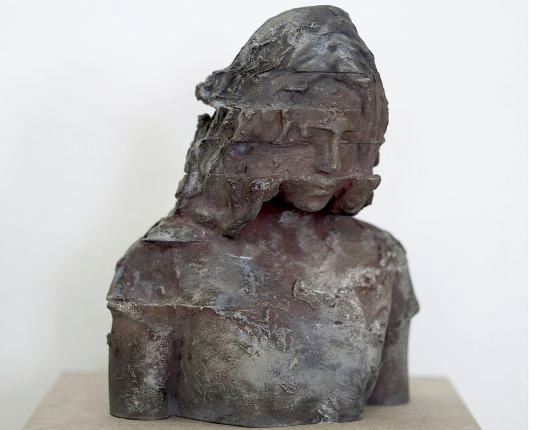
Andy DENZLER (*1965) - Bust II, 2015
2K notes
·
View notes
Photo










the hungers of hadewijch and eckhart, donald f. duclow // stigmata: escaping texts, hélène cixous // you are in a hotel room, joan tierney // the notebooks of malte laurids brigge, rainer maria rilke // great expectations, kathy acker // hot-hand fallacy, jasmine gibson // erotism: death and sensuality, georges bataille // cain, josé saramago // love in the time of monsters, emily palermo // a curious night for a double eclipse, j. karl bogartte.
12K notes
·
View notes
Text
India
Last edited 2018-10-04
Articles
* Brockington, Mary. 2010. “Helping the Cosmos: The Indian Avatāras.” Cosmos: Journal of the Traditional Cosmology Society 26 (2010): 37-52.
* Chakraborty, Suman. “Women, Serpent and Devil: Female Devilry in Hindu and Biblical Myth and its Cultural Representation: A Comparative Study.” Journal of International Women’s Studies 18, no. 2 (January 2017): 156-165.
Pingree, David. “Some of the Sources of the Ghāyat al-hakīm.” Journal of the Warburg and Courtauld Institutes 43 (1980): 1-15.
Chapters
Evans, Nicholas H. A. “Beyond cultural intimacy: The tensions that make truth for India’s Ahmadi Muslims.” American Ethnologist 44, no. 3 (August 2017): 490-502.
* Hegewald, Julia A. B. “Images of the Cosmos: Sacred and Ritual Space in Jaina Temple Architecture in India.” In Heaven on Earth: Temples, Ritual, and Cosmic Symbolism in the Ancient World, edited by Deena Ragavan, 55-88. Chicago, IL: University of Chicago Press, 2013.
Huang, Po-chi. “The Cult of Vetāla and Tantric Fantasy.” In Rethinking Ghosts in World Religions, edited by Mu-chou Poo, 211-234. Leiden: Brill, 2009.
1 note
·
View note
Text
Indonesia
Last edited 2019-05-16
Chapters
* Aragon, Lorraine V. “Who Owns the World? Recognizing the Repressed Small Gods of Southeast Asia.” In Fairies, Demons, and Nature Spirits: “Small Gods” at the Margins of Christendom, edited by Michael Ostling, 277-299. Basingstoke, UK: Palgrave Macmillan, 2018.
5 notes
·
View notes
Text
Myanmar
Last edited 2019-11-09
Articles
* Ho, Tamara C. “Transgender, Transgression, and Translation: A Cartography of Nat Kadaws: Notes on Gender and Sexuality within the Spirit Cult of Burma.” Discourse 31, no. 3 (Fall 2009): 273-317.
4 notes
·
View notes
Text
Goddess Movement
Last edited 2020-04-07
Articles
Feraro, Shai. “Invoking Hecate at the Women’s Peace Camp: The Presence of Goddess Spirituality and Dianic Witchcraft at Greenham Common in the 1980s.” Magic, Ritual, and Witchcraft 11, no. 2 (Winter 2016): 226-248.
Chapters
Christ, Carol P. “Rethinking Theology and Nature.” In Weaving the Visions: New Patterns in Feminist Spirituality, edited by Judith Plaskow and Carol P. Christ, 314-325. New York, NY: HarperCollins, 1989.
* Griffin, Wendy. “Webs of Women: Feminist Spiritualities.” In Witchcraft and Magic: Contemporary North America, edited by Helen A. Berger, 55-80. Philadelphia: University of Pennsylvania Press, 2005.
Shibley, Mark A. “Secular But Spiritual in the Pacific Northwest.” In Religion and Public Life in the Pacific Northwest: The None Zone, edited by Patricia O’Connell Killen and Mark Silk, 139-167. Walnut Creek: AltaMira Press, 2004.
Papers
* Maya, Kavita. “The Emergence of Contemporary Western Goddess Spirituality: Feminism, Romanticism, and the Enlightenment.��� Paper presented at Ways of Knowing: Graduate Conference on Religion, Cambridge, MA, October 25, 2013.
12 notes
·
View notes
Text
recs directory
all my book / articles / film recs !! please check before sending an ask for recs <3 (this are mostly from 2020-22 so don't hesitate to ask for newer recs)
last updated: 10.06.2023
books
essay collections women in translation MET art books on loneliness / pt. 2 lithub syllabi arthurian + atmospheric on internet culture gentle books underrated favs 2022 reads fav prose quarterly book recs summer reading list: 2021, 2022, 2023 monsoon reading list: 2022 yearly tbr: 2022, 2023 random fiction, pt. 2, pt. 3*, pt. 4*, pt. 5*, nonfiction yearly fav reads: 2019*, 2021 on colour theory* drive link to books* related tags: ref: mine, ref, book recs, book log
articles
misc readings tag random recs
places to read articles related tags: readings, articles
films
short films horror films random recs fav first watches: 2022 related tags: movie log
837 notes
·
View notes
Text
“Classical painting used no blue. According to Oswald Spengler, this was because blue–and green–were to the Greeks vaporous, “essentially atmospheric” and “not substantial”, a perspective colour, ethereal as the colour of the heavens, the sea, the shadow of the southern moon, the unactual.”
— Alexander Theroux, The Primary Colours: Three Essays; ‘Blue’ (@thebluesthour)
678 notes
·
View notes